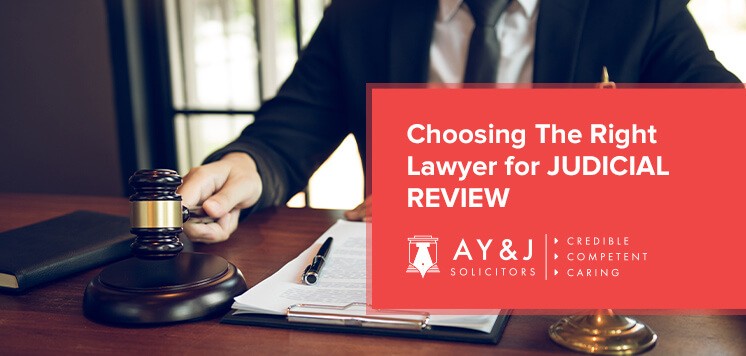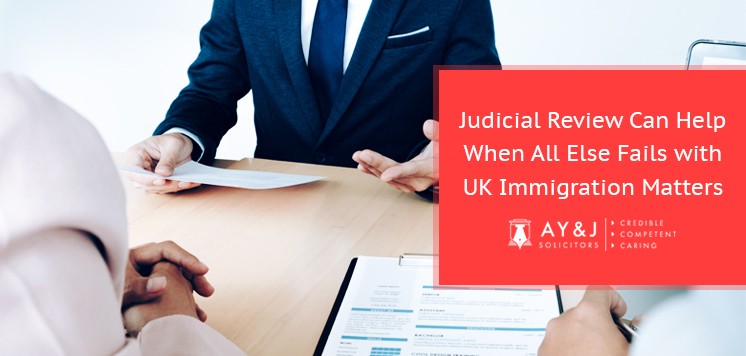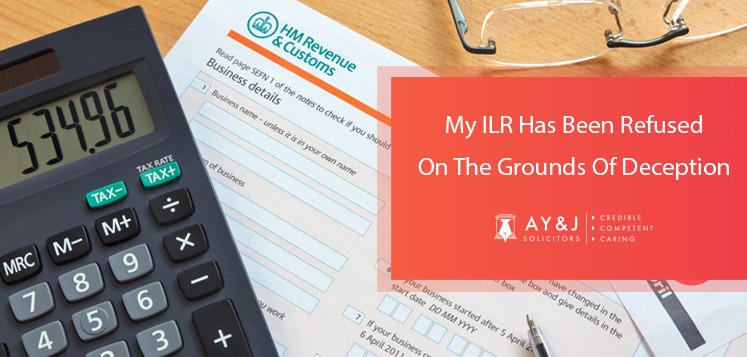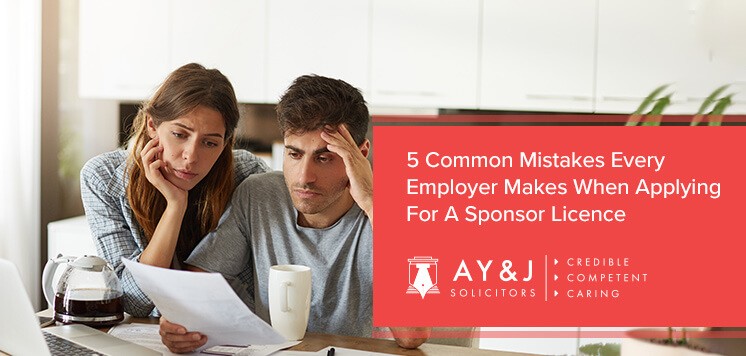Disclaimer: The information in this blog is accurate as of its publication date. Any updates after that date are not reflected here.
Challenging UK Visas and Immigration (UKVI) decision by judicial review is a significant and complicated legal process. However, it can lead to great success, and in some instances result in immigration law being changed to benefit many other migrants.
When it comes to immigration issues, judicial review is the last resort available to litigants if they have been made subject to a decision which may be unlawful, unreasonable, or disproportionate.
Table of Contents
What is the basic law surrounding Judicial Review?
Judicial review is the process by which the courts regulate the lawfulness of decisions made by government departments such as the Home Office and its branches (i.e. UKVI).
Applicants cannot automatically seek a judicial review of a UKVI decision. Permission must be sought from the court. In addition, judicial review is seen as a remedy of last resort; all other possible remedies must be exhausted before you can apply to seek judicial review of a decision.
You can seek judicial review of a UKVI decision on the following grounds:
- Unlawfulness
- Unreasonableness
- Procedural impropriety
- The decision was disproportionate
A claim for judicial review must be brought within three months of the date that the grounds for bringing the claim first arose. Failure to comply with this time-limit will usually result in permission for judicial review being denied.
Unless the claim for judicial review is urgent, claimants should follow the pre-action protocol and send a Letter Before Claim to the other party setting out the details of the claim. The defendant will have 14 days to respond. Failure to do so will be taken into account by the court and sanctions may be imposed unless there are good reasons.
The main remedies for judicial review are as follows:
- Quashing order – nullifies the decision made by the government body.
- Prohibiting order – forbids the government body from acting beyond its powers before they actually make the decision
- Mandatory order – forces the public body to do something, such as forcing the UKVI to review a Spouse Visa application and consider the best interests of the child in accordance with section 55 of the Borders, Citizenship and Immigration Act 2009
- Declaration – the court declares what the rights and obligations of each party are, without actually making an order
- Injunction – the court makes an order to prohibit the authority from acting in a certain way or carrying out a particular act
- Damages – these are awarded only in special circumstances, e. where there is a recognised cause of action in negligence or breach of statutory duty, or there is a human rights claim or a claim under EU law
To have the best chance of obtaining a positive remedy in a judicial review challenge, you should instruct a qualified lawyer to proceed with any judicial review application. Here are some important things to consider when seeking a lawyer to work for you:
Is the law firm SRA regulated?
The Solicitors Regulation Authority (SRA) regulates the legal profession. Be warned – not all law firms are SRA regulated, and only regulated firms can run full Judicial Review cases. When you instruct a law firm that is regulated by the SRA, you can be confident that if you have any concerns about the standard of service you are receiving or your lawyer’s conduct, you can complain to the body and they will thoroughly investigate your concerns.
Does the solicitor have a reputation for honesty?
When it comes to judicial review proceedings, it is important that you find a lawyer who is known for their honesty. Not only are this Judicial Review complicated and costly, but the claimant who loses a review can be ordered to pay costs to the defendant in addition to paying their own costs.
Our lawyers at A Y & J Solicitors will take a careful look at your case before agreeing to proceed. If a judicial review is not in your best interests, they will advise you on other steps to take. It is recommended that you look at independent reviews for a few lawyers before committing to one. If a previous client has mentioned a lawyer’s honesty, it’s a good sign.
What do the reviews say?
Clients tend to give very honest feedback on review platforms. Check out a reputable platform such as trustpilot.com to find out what people are saying about a potential lawyer. When it comes to legal matters, it can be easy to see how a lawyer or firm has handled cases simply by finding out what their previous clients say about them.
What motivates the lawyer?
While every lawyer needs to make a living, there are some lawyers who do their job because they really care about their clients, and they want to make things better. In the case of an SRA-regulated law firm, look for lawyers who are passionate about righting wrongs and holding UKVI accountable when they’ve taken actions that are outside of their authority.
You want a lawyer who wants the best for you and is ready to do whatever it takes to achieve that goal. Judicial reviews are challenging, sometimes lengthy, and require absolute attention to every detail. Only a lawyer passionate about protecting your best interests will provide the level of service needed to run a judicial review case competently.
We Can Help
Every lawyer at A Y & J Solicitors practices immigration law because they are passionate about ensuring that every client has access to the opportunities that living and working in the UK provides. Whether it’s protecting the rights of a Tier 2 Sponsor Licence holder to hire Non-EU workers, defending an entrepreneur who has had their visa extension application denied, or working to bring a family separated by distance and bureaucracy together, the experts at A Y & J Solicitors will work passionately and tirelessly on your behalf to help you achieve your needs are met. Please contact us today on +44 20 7404 7933 or email us at contact@ayjsolicitors.com.
Disclaimer: No material/information provided on this website should be construed as legal advice. Readers should seek an appropriate professional advice for their immigration matters.










